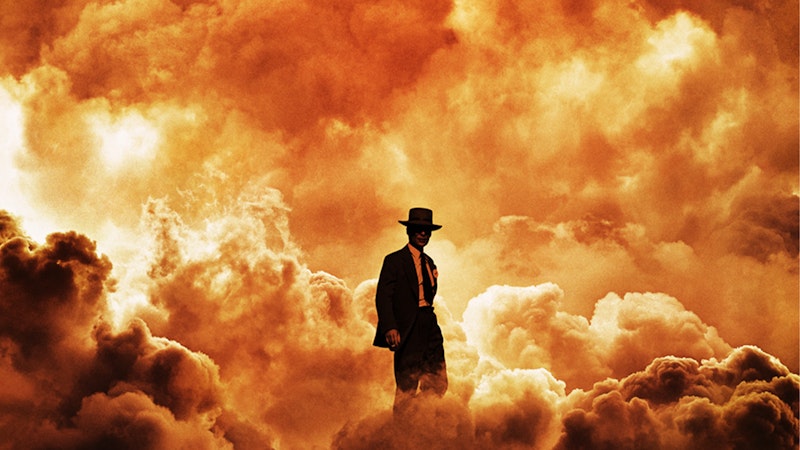With biopic Oppenheimer, Christopher Nolan has made one of the most exciting movies of his career, and he's pulled it off despite a lack of traditional action/adventure sequences. It's a film in which 90 percent of the scenes consist of men in suits talking to each other, but Nolan finds a way to make it riveting. It's the director's best film since Inception in 2010.
The three-hour film uses a complex structure, cutting back and forth among different time periods: Oppenheimer's stint as a college professor in the 1930s, his time leading the Manhattan Project at Los Alamos during the war, an interrogation of Oppenheimer by government agents during the Red Scare in the early-1950s, and a confirmation hearing of Lewis Strauss in 1958. And in a counterintuitive move that works, the latest period in the chronology is the one that uses black-and-white photography. That Los Alamos sequence is the best in the film, using the Trinity Test as the climax, although there are strong moments in every other part as well.
Oppenheimer is depicted as a brilliant scientist and mostly decent man, albeit one prone to occasional costly mistakes. The film states that he was attached to a few different left-wing causes—mostly out of hatred for the Nazis, who were slaughtering his fellow Jews—but never a spy or a full-on member of the Communist Party. He also began to have doubts about the morality of the nuclear project, even as he was received as a national hero.
In adapting Kai Bird and Martin J. Sherwin's 2005 biography American Prometheus, Nolan has cinematic inspirations, starting with Steven Spielberg's Munich, another film about a successful military operation that leads to a lot of guilt on the part of the guy in charge of it. It also recalls the historical epics Oliver Stone used to make in the 1990s like JFK and Nixon—a quickly-cut rampage through history, in which a 40-deep group of recognizable actors play all the real-life parts. And the film's best moment is a direct 2001: A Space Odyssey homage, after Nolan spent much of his Interstellar paying prior tribute to Stanley Kubrick.
But there’s a lot that's pure Nolan, from the pulsating score by Ludwig Göransson, to a couple of key conversations that are introduced and pay off an hour later. And unlike Nolan's last few films, the sound mix isn't set up in such a way that the dialogue can't be easily heard. Cillian Murphy, a longtime Nolan hand who hasn't played a lead role in many years, is very good in the lead role of Robert Oppenheimer, who never gets lost in the shuffle of the massive cast. Robert Downey, Jr., meanwhile, does some of the best work of his career as Lewis Strauss, the U.S. Atomic Energy Commission who had a complex relationship with Oppenheimer. Emily Blunt plays the third major role as Oppenheimer's wife Kitty, who mostly maintains dignity despite being drunk in the majority of her scenes.
It's a deep cast. Matt Damon is fine as General Leslie Groves, while Kenneth Branagh, Rami Malek, Matthew Modine, and Casey Affleck show up for brief but memorable scenes. Jason Clarke gives one of the movie's better turns as a lawyer interrogating Oppenheimer, while Florence Pugh plays Oppenheimer's Communist mistress, in a role that has her naked for more of her screen time than not. And Tom Conti has a couple of brief but wonderful scenes as Albert Einstein. The actor who shows up is Harry Truman, meanwhile, is a surprise way too good to spoil.

